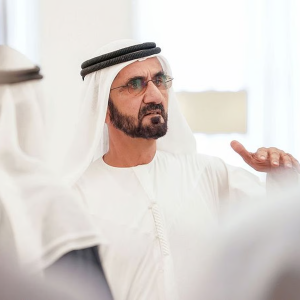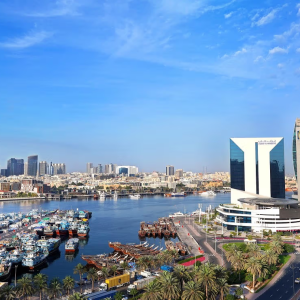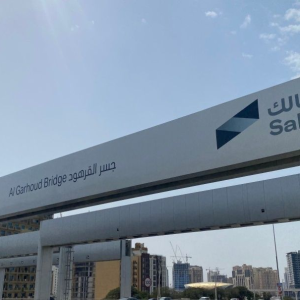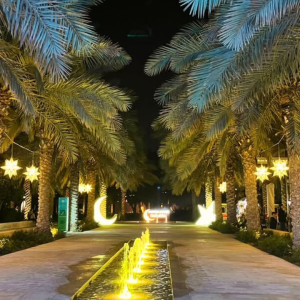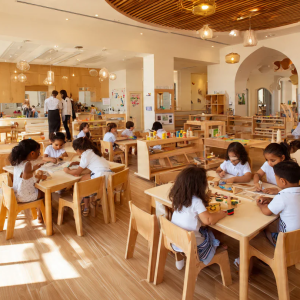Dubai’s Restaurant Boom Faces a Harsh Reality Check
Dubai’s dining scene is often celebrated for its glitz, glamour, and innovation. From rooftop sushi bars to fusion food trucks parked in art districts, it’s a city that tempts the taste buds of millions. Tourists, influencers, and locals all flock to its vibrant cafes, Instagrammable interiors, and gourmet menus. But beneath the surface of this culinary paradise lies a growing crisis—soaring costs, crushing competition, and a shocking rate of failure.
While new restaurants continue to pop up almost weekly, many quietly shut down in less than a year. The city that once promised restaurateurs an easy ticket to success is now proving to be one of the toughest places to survive in the F&B world. For every success story, there are countless heartbreaks, debts, and closed shutters.
A City of Opportunity, But at What Cost?
Dubai has always sold the dream of turning passion into business. It’s a place where chefs, food bloggers, and entrepreneurs from around the world come hoping to create something special. The promise is simple—high footfall, wealthy customers, and a fast-paced lifestyle. But the entry cost into this dream is staggeringly high.

Rents in popular areas like Downtown, DIFC, and Dubai Marina can reach upwards of AED 500,000 to AED 1 million a year. Add licensing, staffing, utilities, and marketing, and you’re looking at over AED 1.5–2 million just to get started. The break-even period is long, and in a market where trends change fast, many can’t keep up.
Restaurant consultant Amira Khoury, who has helped launch over 40 eateries across the UAE, says: “What people don’t realize is that Dubai is saturated. Unless you’re offering something absolutely unique, you’re just one of the hundred others.”

The Lifestyle Looks Luxurious, But the Hustle is Real
From the outside, many Dubai-based restaurant owners and chefs seem to be living the dream. Their Instagram feeds show shiny interiors, full tables, and influencers walking through the doors. But behind the curated content are long nights, unpaid invoices, and silent stress.
Take the example of Rahul Verma, a 34-year-old restaurateur from India who moved to Dubai in 2020 to launch a modern Indian bistro in JLT. “I sold my family land back home, invested everything. We had a great opening week with influencers posting, people lining up, and bookings full. Six months later, I was struggling to pay rent,” he shares.
Today, Rahul works as a food consultant, helping others avoid the mistakes he made. “I still love food, and Dubai has taught me more than any MBA could. But I wish I had known that popularity doesn’t always equal profitability.”
His story is echoed by dozens of others—dreamers who moved here, created magic for a few months, then quietly exited with lessons and loss.
The Pressure of Trend-Driven Dining
Dubai’s population is young, tech-savvy, and always on the hunt for something new. This means restaurants are in a constant race to reinvent themselves. One month you’re trending, the next you’re forgotten. The rise of social media and influencer culture has made it even more complicated.
Marketing budgets often eat a large portion of a restaurant’s spending. Some venues pay influencers AED 5,000 to AED 20,000 for a single post. And if they don’t? They risk being invisible in a city where your success is determined by how photogenic your plating looks online.
But is this sustainable?
Chef Reema Al Zarooni, who owns a contemporary Emirati dining spot in Al Quoz, says: “We can’t keep playing this game. I opened a place to celebrate heritage food, not to win a social media contest. But if I don’t participate, I lose footfall.”
Surviving the Storm: Stories of Resilience and Grit
Amidst all the chaos, there are stories that inspire. Some restaurateurs have adapted and evolved, refusing to give up. They’re changing the game, focusing on community, creativity, and quality over hype.
One such example is Sana and Karim, a young couple from Lebanon who launched their café “Bean & Beats” during the pandemic in 2021. Their concept was simple: great coffee, live music, and fair pricing. They focused on building a loyal customer base rather than chasing virality.
“We knew we couldn’t afford big influencers or pay huge rents, so we started in a modest space in Barsha South. We handed out flyers, played our own music, and invited friends to open mic nights,” says Sana.
Today, they’ve expanded to two more locations and are launching a food truck next year. “Our biggest asset was consistency and community. We created a space people loved coming back to,” Karim adds.
Another standout story is Chef Arjun Rana, who switched from fine dining to cloud kitchens. After two failed restaurants, he now runs three successful virtual brands that deliver across Dubai. “People still want good food, but not always at a fancy location. I changed my model, cut down on costs, and started again,” he shares.
Support Systems Are Missing
A big reason why so many restaurants fail in Dubai is the lack of support for small businesses. There’s no official mentorship program or safety net for F&B startups. Everything from real estate to logistics is expensive and competitive.
In countries like the UK or US, local governments offer grants, tax breaks, and training for small businesses. In Dubai, while things are improving slowly—like flexible visa options and free zone licensing—many restaurateurs still feel like they’re on their own.
That’s where communities are stepping in. Groups like “Dubai Food Entrepreneurs Network” and “F&B Founders Circle” are becoming informal hubs of advice, resources, and even partnerships. Entrepreneurs are learning that collaboration may be the only way to survive.
The Human Cost Behind Every Closed Door
Every restaurant that closes in Dubai has a ripple effect. Staff lose jobs, suppliers lose clients, and dreams are put on hold. What’s worse is the emotional cost—burnout, anxiety, and broken confidence.
Ritu Sharma, a 29-year-old pastry chef from Delhi, worked in three restaurants over two years—each one closed due to losses. “I kept thinking I was the problem. I worked 14-hour days, skipped meals, and stayed smiling in front of customers. But inside, I was falling apart,” she says.
Now, Ritu runs a home bakery, ships desserts across the UAE, and is finally profitable. “Leaving the restaurant world saved my mental health. I now control my time, my kitchen, and my peace.”
Her story is a powerful reminder that success doesn’t always mean fancy décor and a downtown address. Sometimes, it’s just doing what you love in a way that doesn’t destroy you.
What the Future Holds
Despite the challenges, Dubai’s F&B scene isn’t slowing down. In fact, it’s evolving. With the rise of AI ordering, virtual kitchens, and health-conscious menus, the city is seeing a new generation of smart restaurateurs who are tech-first, community-driven, and financially cautious.
Experts believe the future belongs to those who can adapt—not just to customer tastes, but to economic realities. Smaller spaces, leaner teams, and direct-to-customer models will likely dominate in the coming years.
The dream is still alive, but it comes with a warning: glamour can be blinding. Success in Dubai’s restaurant world isn’t just about food. It’s about finance, flexibility, and fierce determination.
Final Thought
Dubai will always be a magnet for those who dream big. But for every viral food post you see, remember the sweat, sacrifice, and sleepless nights behind it. The stories of struggle and survival are just as real as the achievements.
And in those stories, you’ll find not just food—but fuel for your own journey.
Follow us on instagram: UAE STORIES





